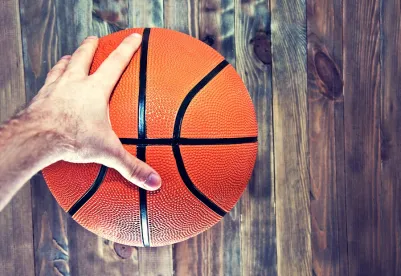On September 30, 2019, Governor Gavin Newsom signed California legislation—Senate Bill (SB) 206—that would permit college student athletes to benefit financially (for example, from endorsement deals) from their names, images, and likenesses while still in school. Governor Newsom signed the Fair Pay to Play Act, which Senator Nancy Skinner (D-Berkeley) and Senator Steven Bradford (D-Gardena) sponsored, with much fanfare, alongside a high-profile professional basketball player and several former college student athletes. The new law is scheduled to take effect in January 2023.
Several other states, including Florida, Illinois, and Georgia, are reportedly considering similar legislation, and some expect federal legislation since the Supreme Court of the United States refused to hear an appeal in a case involving a similar issue several years ago. In October 2016, the Supreme Court denied certiorari requested in O’Bannon, et al. v. NCAA, et al., by both the plaintiffs and the National Collegiate Athletic Association (NCAA). That decision meant that a Ninth Circuit Court of Appeals decision from September 2015, which upheld a lower court’s ruling that the NCAA’s amateurism rules violated federal antitrust laws, remained in effect. That Ninth Circuit decision also rejected a court order that the NCAA could no longer enforce its rules limiting payments to athletes. Since then, U.S. senators Mitt Romney (R-UT) and Bernie Sanders (D-VT) have publicly supported the idea of a free-market approach to permitting college athletes to earn compensation from their names, images, and likenesses. Given this history, the current notion of amateurism may be ending.
Senator Skinner cited the financial revenue generated by athletes as support for the legislation, stating, “For decades, college sports has generated billions for all involved except the very people most responsible for creating the wealth. That’s wrong.” Senator Bradford also noted a financial imbalance as a justification for the bill: “While our student athletes struggle to get by with basic necessities such as food and clothing, universities and the NCAA make millions off their talent and labor. College coaches are now some of the highest paid employees in the country because of the talented young men and women who play for them.”
The NCAA’s Response
Meanwhile, in response to Governor Newsom’s signing of SB 206, the NCAA stated that it agrees that “changes are needed to continue to support student-athletes, but improvement needs to happen on a national level through the NCAA’s rules-making process.” According to the statement:
Unfortunately, this new law already is creating confusion for current and future student-athletes, coaches, administrators and campuses, and not just in California.
We will consider next steps in California while our members move forward with ongoing efforts to make adjustments to NCAA name, image and likeness rules that are both realistic in modern society and tied to higher education.
As more states consider their own specific legislation related to this topic, it is clear that a patchwork of different laws from different states will make unattainable the goal of providing a fair and level playing field for 1,100 campuses and nearly half a million student-athletes nationwide.
Prior to California’s enactment of SB 206, the NCAA’s Board of Governors Federal and State Legislation Working Group, which included “presidents, commissioners, athletics directors, administrators and student-athletes,” had studied ways to permit athletes to receive additional compensation. The group submitted comprehensive recommendations to the NCAA’s Board of Governors on October 29, 2019, recommending that athletes be permitted to “benefit from the use of their name, image and likeness in a manner consistent with the collegiate model.”
The View From the Sidelines
There are multiple secondary effects of California’s legislation. On the one hand, California colleges are expected to have an advantage in recruiting athletes, as the new legislation would give some athletes the potential for financial gain.
On the other hand, the NCAA’s response seems to indicate that the NCAA may change its rules in the near future rather than face “a patchwork of different laws from different states.” The NCAA has also reportedly threatened to keep California schools out of championship games, contending that allowing students rights to their names, images, and likenesses will give California schools an unfair advantage in recruiting.
Caught between these two forces are the colleges that are NCAA members. For their part, member schools in California will have to decide if they will leave the NCAA or comply with California’s law and defy the NCAA’s rules.
Can the NCAA Ban California Schools?
Before Governor Newsom signed the Fair Pay to Play Act, the NCAA issued a letter to the governor stating:
California Senate Bill 206 would upend that balance. If the bill becomes law and California’s 58 NCAA schools are compelled to allow an unrestricted name, image and likeness scheme, it would erase the critical distinction between college and professional athletics and, because it gives those schools an unfair recruiting advantage, would result in them eventually being unable to compete in NCAA competitions. These outcomes are untenable and would negatively impact more than 24,000 California student-athletes across three divisions.
. . .
We urge the state of California to reconsider this harmful and, we believe, unconstitutional bill and hope the state will be a constructive partner in our efforts to develop a fair name, image and likeness approach for all 50 states. [Emphasis added.]
Despite these statements, there’s a question of whether the NCAA can lawfully ban California schools from competing because they are following a state law. Senator Skinner has noted that a ban on California schools would constitute an antitrust violation: “Numerous legal scholars assert that SB 206 is constitutional and that an NCAA ban of California colleges from championship competition is a clear violation of federal antitrust law.”
Proponents of the new law assert that Section 1 of the Sherman Act precludes the NCAA from banning California schools simply for complying with state law, as it would arguably constitute an illegal form of wage fixing and an unlawful restraint of trade. For now, the NCAA has not taken any legal action against California to test whether a ban on California schools would survive antitrust scrutiny.
With California’s law not taking effect until 2023, the schools, athletes, and NCAA have time to prepare for a new order in college sports, even if the exact form is still unknown. In the interim, the only certainty is that change is coming and college sports will never be the same.





 />i
/>i


